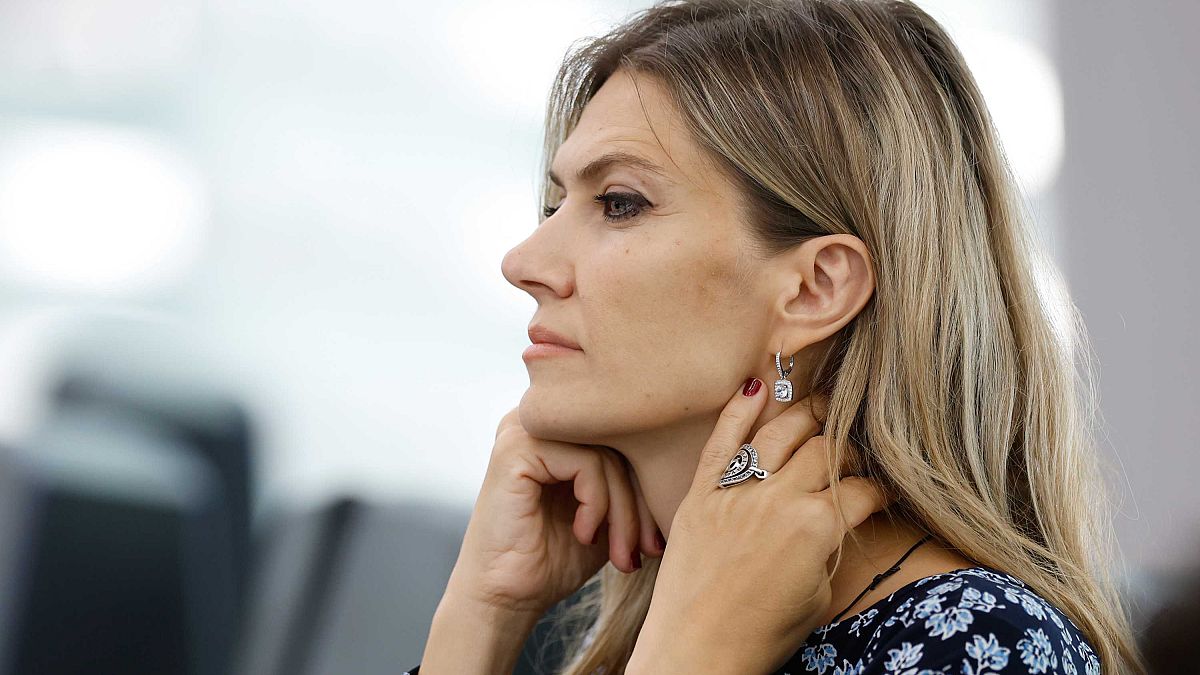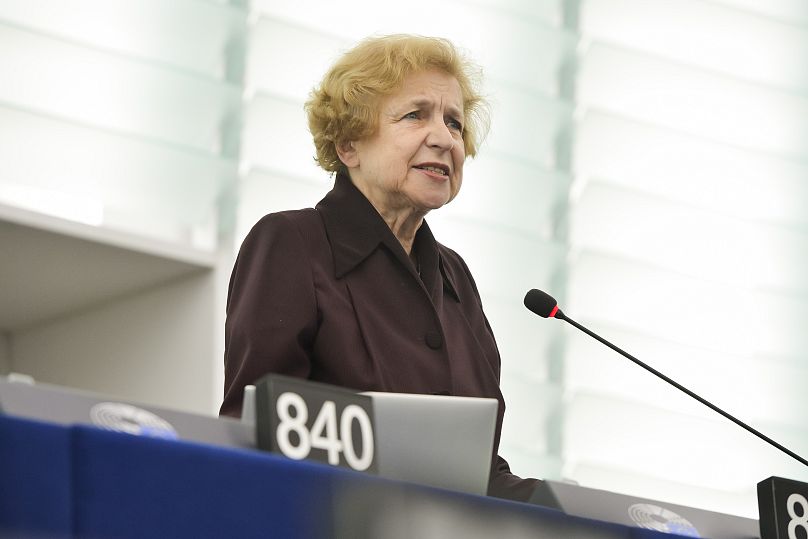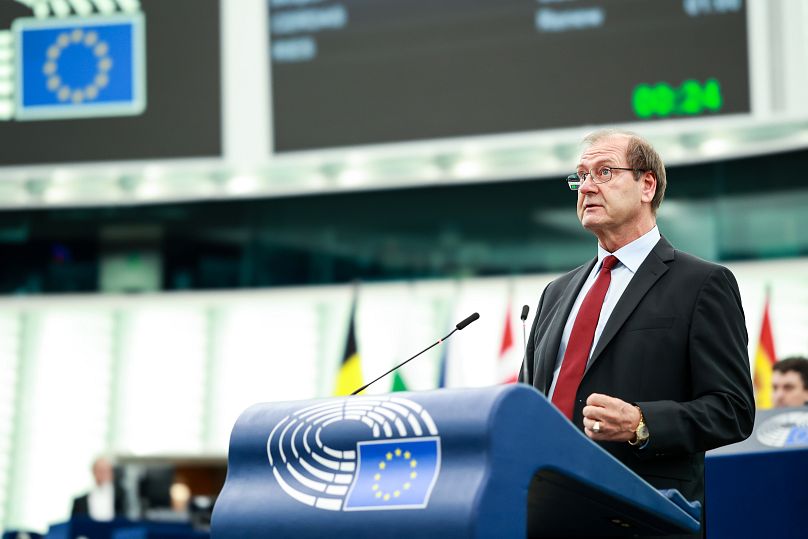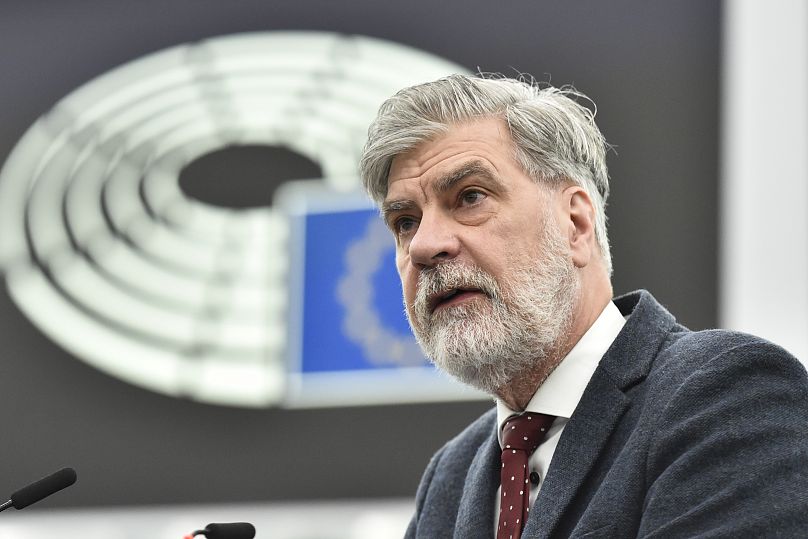From romance to football, alleged corruption to insulting the boss: MEPs can lose their political moorings in a variety of ways. By the close of this European Parliament, 50 MEPs were without groups – how did they get there?
Political attention ahead of the EU elections has focused on the big political parties – especially with the prospect of right-wing groupings on the rise.
But there’s one caucus that’s been growing in recent years, as part of a trend that’s likely to continue – the dozens of homeless MEPs who don’t belong to any political grouping at all.
In February 2020, just after UK MEPs left due to Brexit, there were only 28 EU lawmakers sitting as independents, unaffiliated with any of the parliament’s seven organised political parties.
Now there are 50 and, according to an Ipsos poll for Euronews, they could constitute 68 of the 720 seats in the European Parliament's June elections.
Sometimes that’s because entire national parties – such as Italy’s Five Star Movement -- are detached from any wider EU constellation. But sometimes the reasons are more personal or prosaic.
From romance to football, alleged corruption to insulting the boss, Euronews looks at how lawmakers in the Parliament’s political outgroup got there.
The scandalous
In December 2022, the European Parliament was hit by allegations that foreign actors were trying to interfere in its democratic processes through bribes. The ongoing political scandal is the biggest in the history of the EU institution, affecting its credibility and citizens' trust.
It became known as 'Qatargate' and led to a series of internal reforms and the arrest of eight people. Among them are the three former Socialist MEPs who are now facing preliminary charges: Greek Eva Kaili, Italian Andrea Cozzolino and Belgian Marc Tarabella.
All three have maintained their innocence throughout the Qatargate investigation.
Kaili was at the time a vice-president of the Parliament, and was then expelled from the Socialists and Democrats group given allegations of criminal association, corruption and money laundering.
The other two decided to step down from the group, and Tarabella also resigned from the Parliament's delegation for relations with the Arab Peninsula. All three remain MEPs.
That’s not the only scandal to hit the European Parliament lately. Earlier this year, Latvian MEP Tatjana Ždanoka was accused of spying for the Kremlin – although she has denied the accusations in a video posted on Facebook.
According to media reports, other Latvian MEPs are warning Ždanoka might not be an isolated case.
She had already been expelled from her Greens/EFA group in 2022, after she voted against a resolution condemning Putin’s military aggression against Ukraine.
The haters
Early in 2021, the only MEP of Lithuania’s Labour Party, Victor Uspaskich, was kicked out of the liberal Renew Europe grouping. The reason? He referred to LGBT people as “perverts” who “must not be tolerated”, in a video he published on social media.
The Lithuanian MEP later apologised, but the group still voted to expel him.
As Uspaskich learned, slinging insults is always liable to get you into trouble in the workplace – but even more so when it’s an insult about your boss.
Sadly, that may have come as news to Hungarian MEP Tamás Deutsch, who in 2020 compared the European People’s Party’s German leader Manfred Weber to the Gestapo.
That remark earned him a suspension from the centre-right group. Only a year later, he was joined by the other members of his national party, when the whole Fidesz delegation quit the EPP.
The (alleged) bullies
French far-right MEP Hervé Juvin was convicted of domestic violence in November 2022, confirming a verdict he’d appealed from 2021. His party, Marine Le Pen’s Rassemblement National, dismissed him, and Juvin has been working solo on the Parliament’s budget committee ever since.
On the other side of the political spectrum, left-wing Greek MEP Alexis Georgoulis is facing charges of rape and assault in relation to a complaint submitted by a woman following an incident in Brussels in 2020, which resulted in his expulsion from the Syriza party.
Belgian authorities last year asked for his parliamentary immunity to be lifted. Georgoulis has maintained his innocence, calling the complaint filed by the woman "false".
Only a couple of months later, The Left faced another internal dismissal after there were 13 separate reports of “harassing, inappropriate and aggressive” behaviour from French MEP Anne-Sophie Pelletier towards parliamentary assistants.
Her party, France Insoumise, announced her expulsion in December 2023.
Pelletier has strongly denied the allegations, saying that she was cleared by an investigation by the parliamentary anti-harassment committee.
The misfits
Sometimes, MEPs go it alone because the politics just no longer works.
In January 2022, Jörg Meuthen, the long-serving leader of Germany's far-right Alternative für Deutschland (AfD), resigned over concerns that his party was drifting too far to the right.
“I hear quite clear totalitarian echoes there,” he told German media.
The political line of the far-right Identity and Democracy group did not convince Dutch MEP Marcel de Graaff either, but for a very different reason.
De Graaff faced suspension from the group in 2022 for being too pro-Moscow. He then left ID for good, claiming it was anti-Russian.
He's not the only one deemed to have been consorting with the wrong crowd.
Back in October 2023, the European socialists suspended the membership of three Slovak MEPs - Monika Benova, Robert Hajsel and Katarina Roth Nevedalova – as their party entered into government with the far-right Slovak National Party.
The coalition deal was “not compatible” with progressive values, the Socialists & Democrats said in a published statement, citing positions on the war in Ukraine, migration, the rule of law and LGBT rights.
Catalan separatists led by Carles Puigdemont also faced a blackballing from other major groups.
After the controversial 2017 referendum on Catalan independence, Puigdemont fled from Spanish justice and made himself at home in Waterloo, Belgium, from where he stood as an independent in 2019 European elections, alongside his colleague Antoni Comín.
A request by them and fellow party member Clara Ponsatí to join the Greens/EFA group was subsequently rebuffed since the group already played host to other left-wing Catalan independence parties.
The request caused an internal split within the Greens, partly as conservative Flemish party NVA had supported Puigdemont during his self-imposed exile in Belgium. The trio withdrew when it became clear they wouldn’t win the vote to join the Greens, and now sit as independents. Nor was that a first time for Puigdemont, whose Catalan European Democratic Party was expelled from the liberals in 2018.
The iconoclasts
Sometimes the reasons MEPs quit their political group defy neat categorisation – and the reasons for leaving are as unique as their politics.
That’s the case for far-right MEP Francesca Donato, who was so opposed to a string of Covid-19 measures supported by her party that she left.
Donato found the decrees “freedom-killing” and “discriminatory” and abandoned Matteo Salvini’s Lega party to join Democrazia Cristiana and become a non-attached MEP.
Others simply followed their hearts.
Former Green MEP Martin Buschmann resigned from his position due to the revelations that he was a member of the German far-right NPD party in the 1990s.
He’s explained the decision was personal, rather than political: the star-crossed lover later told the media he’d simply been young and foolish, and fallen in with a girl from across the political divide.
It was a different, profounder kind of love that persuaded Greek MEP Theodoros Zagorakis to leave his party: football.
As a former professional player and president of PAOK FC, one of the country’s two major soccer clubs, Zagorakis apparently couldn’t tolerate a decision to remove PAOK from Greece’s top league.
Greece’s prime minister Kyriakos Mitsotakis himself expelled Zagorakis from the New Democracy party in early 2020 – though the ex-footballer managed to find himself a new European home among the socialists after just two weeks.





